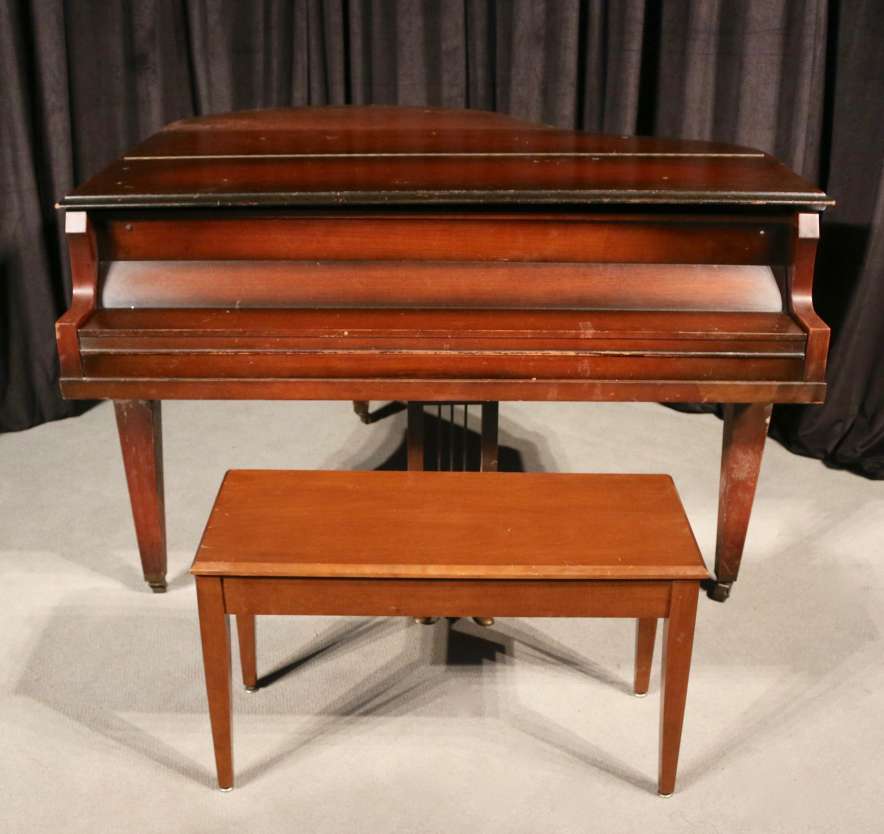

If you're successfully entering regional competitions, I'd say that you and your Wurlitzer are a fine team for the moment. Part of being inspired as a pianist is to be inspired by your instrument. If your interest in piano persists and you near advanced level, you'll need to consider upgrading at that point to a better quality instrument. For the time being, therefore, the Wurlitzer will likely serve your needs well as a beginner and perhaps even as an intermediate student. My guess is that you're probably a beginner at piano, where you seem unfamiliar with pianos. These are geared more to economy than performance-so not a great piano frankly. Wurlitzer grands fall into Category 4, "Medium quality consumer-grade pianos". Larry Fine's "The Piano Book" 4th Edition 2001 ranks grands from high to low into five categories based on a survey, Category 1 being top notch. Sometimes parents wisely buy a promotional or entry level piano for a good reason: it's impossible to predict whether their son or daughter will evolve into a serious and accomplished pianist, or whether lessons and practicing will peeter out after just a couple of months! There's no way to tell, so the safe route is to buy an inexpensive piano, usually a vertical rather than a grand at that. The Steinway name is their top quality piano, Boston is their more affordable piano, and Essex is their entry level instrument.

Baldwin grands are positioned as the artist quality pianos given their craftsmanship, Chickering is in the middle grade, and Wurlitzer is "entry level" only.

From a marketing standpoint, Baldwin has structured a three-tier selling strategy.

The tone of Wurlitzer grands is not particularly pleasing or remarkable.īaldwin's ownership of Wurlitzer has not improved the Wurlitzer brand either. Baldwin now contracts manufacture of Wurlitzers out to Samick Piano in Korea. When Baldwin bought Wurlitzer, the Young Chang contract was cancelled. During the late 1980s, Wurlitzer grands were not made by Wurlitzer at all, but instead by Young Chang in Korea. Wurlitzer pianos were never considered among the better brands. As you probably know, Baldwin, Steinway, and Mason & Hamlin are the three companies that produce artist-quality grands in the U.S. Wurlitzer already owned Chickering Piano, so Baldwin got Chickering too as part of the package deal. Around 1990 Wurlitzer was sold to the Baldwin Piano Company. But the company was always better known for its theater organs than pianos. Manufacture of Wurlitzer pianos began in the U.S.


 0 kommentar(er)
0 kommentar(er)
